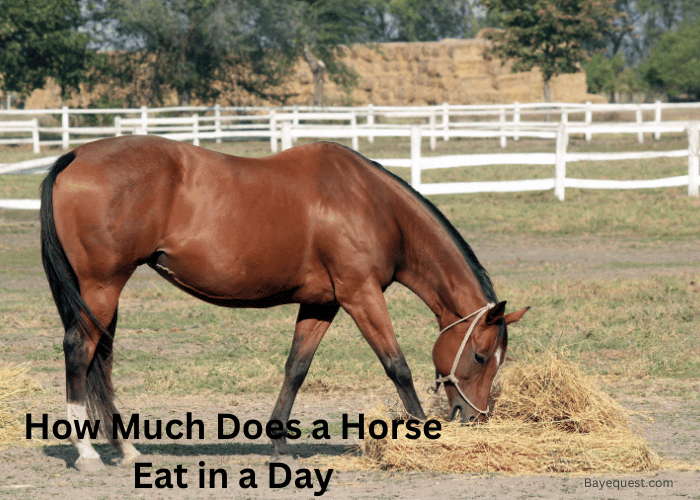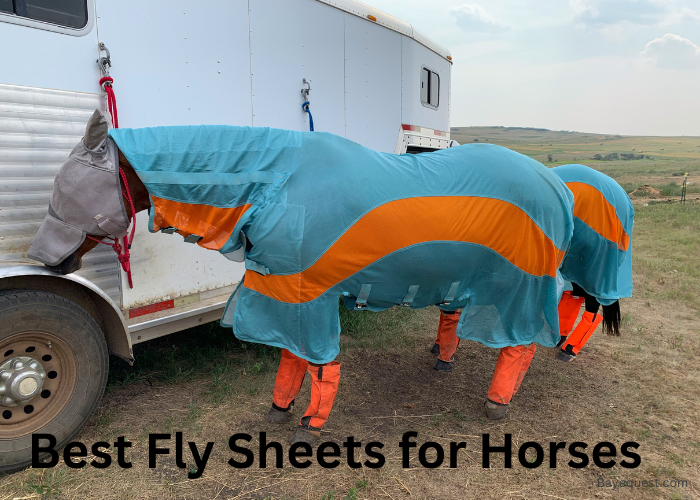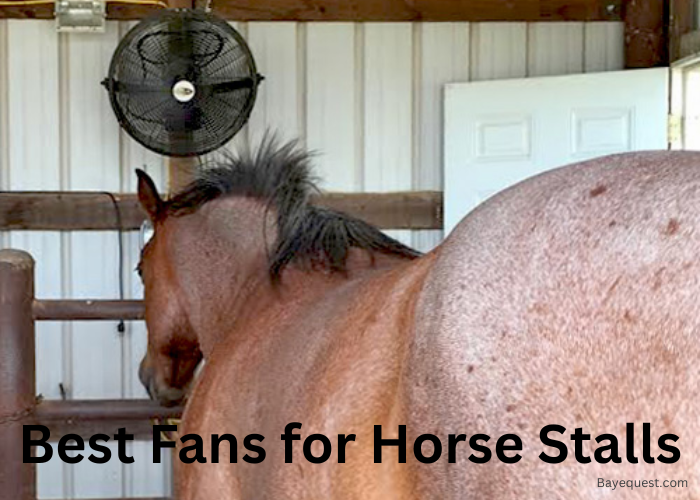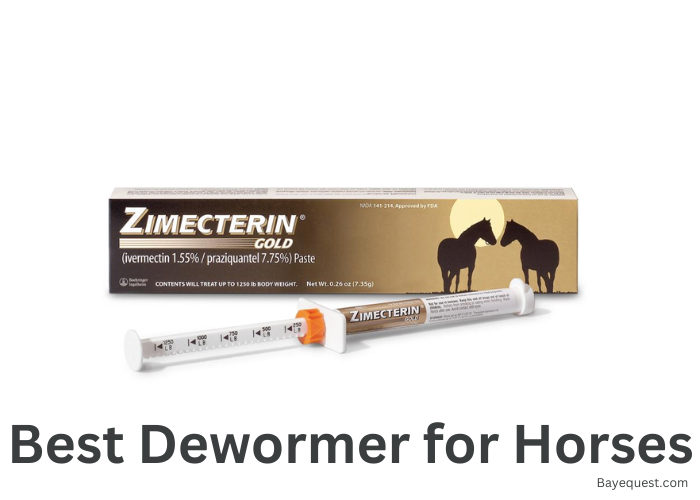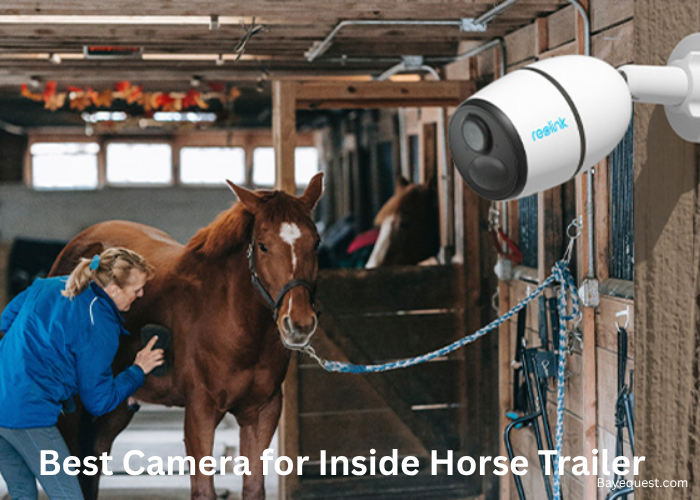Feeding a horse isn’t just about tossing some hay into a trough and calling it a day. A horse’s diet is like a carefully balanced recipe, and getting it right makes all the difference.
Whether your horse is a laid-back pasture buddy or a high-energy competitor, knowing how much they should eat can keep them happy and healthy.
Let’s dig into what makes up a horse’s daily menu and how you can ensure your four-legged friend is getting just the right amount of fuel.
How Much Does a Horse Eat in a Day? Key Takeaway
A horse eats 1.5 to 2% of its body weight in dry feed each day. For a 1,000-pound horse, this amounts to 15 to 20 pounds of hay, grass, or other forage. This amount can vary based on the horse’s size, activity level, and dietary needs.
Factors Influencing a Horse’s Diet
Understanding these factors is key to feeding your horse right. Let’s explore what influences their diet the most.
Size and weight of the horse
A big horse needs more food. That’s the simple truth.
A heavier horse naturally requires more calories just to maintain its weight, even if it’s just standing around. Think of it like fueling a larger car—bigger tank, more fuel.
Smaller horses, on the other hand, eat less but still need enough to keep them strong and healthy. It’s all about matching the amount of food with the size of the horse.
Feed them too little, and they’ll lose weight. Feed them too much, and you could be dealing with a hefty problem.
Activity level
A horse that’s always on the go needs more energy. If your horse spends its days galloping, jumping, or pulling, it burns a lot of calories.
More activity means more food, especially energy-rich feeds. But if your horse is more of a pasture ornament, lounging and strolling around, it doesn’t need as much.
Feeding a couch potato horse like an athlete can lead to weight issues. So, adjust the diet to match how hard your horse is working.
The key is balance—enough fuel for the task, but not too much.
Age and health condition
Young horses are like kids—they need more food to grow big and strong. Older horses, though, might need less, especially if they’re not as active.
Health plays a huge role, too. A sick horse or one with a chronic condition might need special feeds or more of certain nutrients.
The bottom line is that a horse’s diet changes with age and health. Keep an eye on how they’re doing and adjust as needed.
The right diet can make all the difference in keeping them feeling their best.
Palatability of the feed
If the horse doesn’t like the taste, it won’t eat it. Horses are like us in that way—they have preferences. Some feeds just aren’t appealing, even if they’re packed with nutrients.
On the other hand, a feed that’s tasty and appealing will get eaten up quickly. So, palatability is crucial.
You could have the best feed in the world, but if your horse turns its nose up at it, you’re not going to get very far. It’s about finding that balance between nutrition and taste.
Types of Feed for Horses
Forage
Forage is the foundation of a horse’s diet. It is like their daily bread.
Horses naturally graze on grass, and hay serves as the next best thing when fresh grass isn’t available. It’s rich in fiber, which keeps their digestive system healthy and moving smoothly.
For most horses, forage should make up the bulk of their diet—about 70-80%. It provides the essential nutrients and energy they need to stay healthy.
Whether it’s fresh pasture or dried hay, forage is a non-negotiable part of their daily menu.
Concentrates
Concentrates are the power boost in a horse’s diet. These are grains and pellets designed to pack in extra energy.
They are beneficial for horses that work hard or need more calories than forage alone can provide. They’re like a high-energy snack—great in the right amounts. However, too much can lead to problems like weight gain or digestive issues.
Concentrates should complement the forage, not replace it. They’re used to meet specific energy needs, providing a quick, digestible source of fuel to keep a horse performing at its best.
Supplements
Supplements are the finishing touch to a horse’s diet. They’re not always necessary, but they can fill in nutritional gaps when needed.
They include vitamins, minerals, and other nutrients that a horse might not get enough of from forage and concentrates alone.
For example, a horse that doesn’t have access to fresh grass might need a vitamin supplement. Or a horse with joint issues might benefit from a supplement designed to support joint health.
The key is to use supplements wisely, ensuring they add to the diet without overcomplicating it.
How Much Does a Horse Consume in a Day?
A horse can eat a lot in a day. On average, a horse consumes about 1.5% to 2.0% of its body weight in food.
For a 1,000-pound horse, that’s roughly 15 to 25 pounds of food daily. Most of this comes from forage—hay or grass.
If your horse is more active or has special dietary needs, you might add concentrates or supplements to the mix. But the bulk of their diet is always forage.
It’s what keeps them healthy and happy. When feeding your horse, remember it’s all about the right balance and enough to keep them going strong.
How Much Forage Should a Horse Eat in a Day?
A horse should eat plenty of forage each day. About 1.5% to 2.0% of its body weight in forage is okay.
For a 1,000-pound horse, that means 15 to 25 pounds of hay or fresh grass daily. Remember, forage is the cornerstone of their diet, providing the fiber and nutrients they need to stay healthy.
It helps keep their digestive system working smoothly and prevents issues like colic. So, whether it’s grazing in a pasture or munching on hay, ensure your horse gets enough forage.
How Much Concentrate Should a Horse Eat in a Day?
Concentrates are like the extra energy boost in a horse’s diet. The amount a horse should eat depends on its workload and nutritional needs.
For most horses, concentrates should make up a small portion of their diet—usually no more than 1% of their body weight. So, for a 1,000-pound horse, that’s about 1 to 10 pounds of grain or pellets per day.
If your horse is working hard, it might need more, but please, do not overdo it. Too much concentrate can lead to digestive issues or weight gain.
How Much Hay Will a Horse Eat in a Day?
A horse needs about 1.5% to 2.0% of its body weight in hay each day. For a 1,000-pound horse, that’s roughly 15 to 25 pounds of hay daily.
Hay is a crucial part of their diet, especially when fresh pasture isn’t available. It provides the fiber and nutrients they need to stay healthy and keeps their digestive system running smoothly.
The exact amount can vary depending on the horse’s size, activity level, and whether they have access to other forage like grass. Generally, ensuring they have enough hay each day is key to their overall health and well-being.
How to Calculate How Much Feed to Give Your Horse
Calculating how much feed to give your horse is simpler than it might seem. Start by knowing your horse’s weight.
Most horses need about 1.5% to 2.0% of their body weight in total food each day. For a 1,000-pound horse, that’s 15 to 25 pounds of food.
Begin with forage. If your horse is eating hay, measure out the right amount—usually around 20 pounds for a 1,000-pound horse.
If your horse also needs concentrates, add those in small amounts, no more than 1% of their body weight. For our 1,000-pound horse, that’s about 1 to 10 pounds of grain or pellets.
Adjust based on your horse’s needs. If they’re more active, they may need more. If they’re less active, less.
It’s all about balancing their diet with the right amount of forage, concentrates, and supplements to keep them healthy. Regularly check their body condition and adjust as needed to maintain a healthy weight.
Signs of Overfeeding Your Horse
Overfeeding your horse can lead to serious health issues, so you need to watch for the signs.
One of the first indicators is weight gain. If your horse starts looking rounder, especially around the neck, shoulders, and ribs, it’s a sign they’re getting too much food.
Fat deposits, known as “cresty neck,” can develop, which is a clear warning that your horse is overweight.
Another sign is sluggishness. An overfed horse, especially one getting too much concentrates, might seem less energetic or become lazy.
On the flip side, they could also become overly excitable or anxious due to excess energy they’re not using.
Digestive problems like colic or diarrhea can also indicate overfeeding.
Their hooves might suffer, too. Laminitis, a painful inflammation of the hoof, is often linked to overeating, especially high-sugar feeds.
Finally, watch out for behavioral changes. An overfed horse might become more aggressive or display unusual behaviors.
If you notice any of these signs, it’s time to reassess their diet. Cut back on the amount of feed and focus more on balanced nutrition to help get your horse back on track.
Signs of Underfeeding Your Horse
Underfeeding your horse can be just as concerning as overfeeding. One of the most obvious signs is weight loss.
If your horse’s ribs, hips, or spine start becoming more visible, they’re likely not getting enough food. Their body condition will appear lean or even bony, which is a clear indicator that they need more nutrition.
Another sign is low energy. An underfed horse may seem lethargic or tired, lacking the usual spark in their step.
They might not be as willing to work or may tire out quickly during activities they usually handle with ease.
You might also notice changes in their coat. A lack of adequate nutrition can lead to a dull, rough, or patchy coat.
Their mane and tail might look less healthy, and their hooves could become brittle or crack more easily.
Behavioral changes can also occur. An underfed horse may become more irritable or anxious, possibly because they’re feeling hungry or uncomfortable.
They might also start eating unusual things, like dirt or wood, in an attempt to satisfy their nutritional needs.
Finally, underfeeding can affect a horse’s overall health. They may become more susceptible to illnesses, have a weaker immune system, or take longer to recover from injuries.
If you notice any of these signs, review their diet and ensure they’re getting enough of the right kinds of food.
What is a Normal Daily Horse Feed Expense?
The daily cost of feeding a horse can vary based on factors like location, the type of feed, and the horse’s specific needs. On average, you might expect to spend anywhere from $3 to $10 per day per horse.
Here’s a rough breakdown:
Forage (Hay/Grass). This is the bulk of the cost, usually around $2 to $6 per day, depending on the quality and availability of hay. If your horse is grazing on pasture, this cost could be lower.
Concentrates (Grains/Pellets). Adding grains or pellets can add another $1 to $4 per day, depending on the type and amount your horse needs.
Supplements. If your horse requires supplements, these could add a few more dollars each day, depending on what you’re using.
So, in total, you’re looking at an average daily expense of $3 to $10.
Keep in mind that these costs can fluctuate based on the season, the specific dietary needs of your horse, and regional feed prices.
Conclusion
Feeding a horse might seem like a simple task, but it’s all about getting the balance just right. Whether they’re munching on hay or enjoying a grain treat, knowing how much to feed keeps them healthy and happy.
It’s not just about filling the trough; it’s about fueling their day the right way. So, keep an eye on your horse’s needs, adjust as you go, and you’ll have a well-fed, content horse ready for whatever the day brings.




